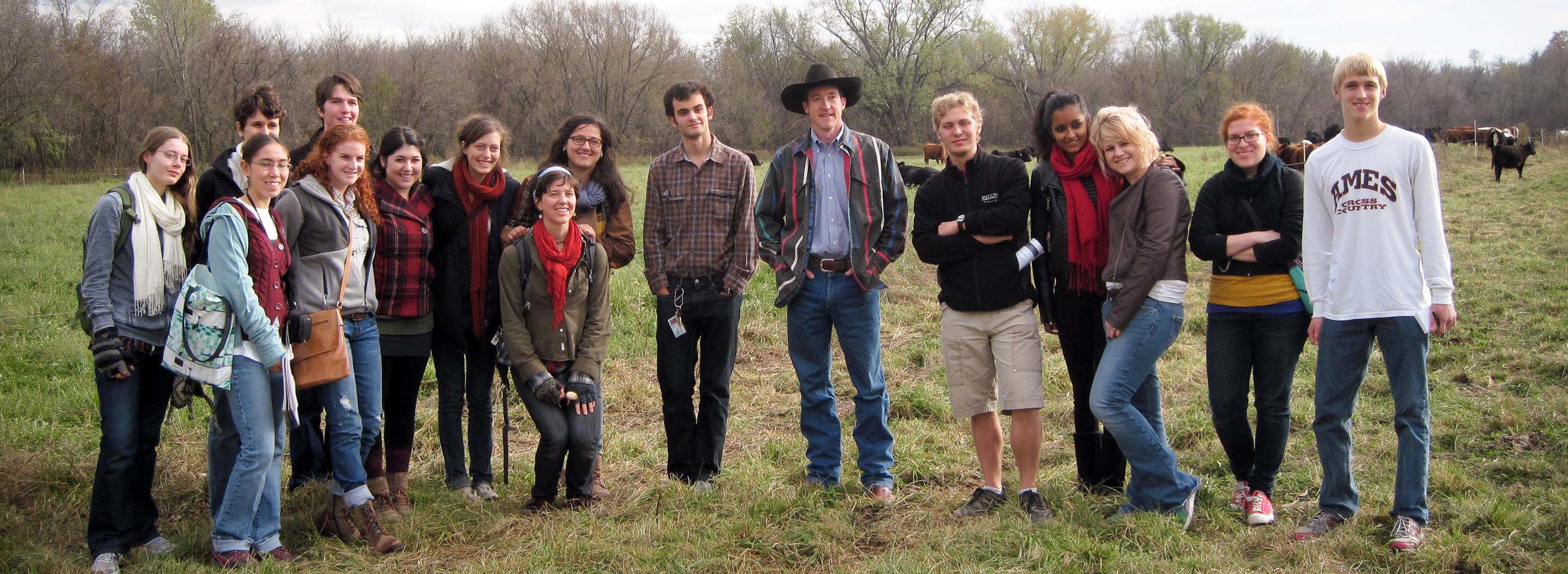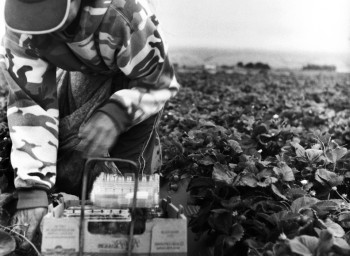In the most recent BAMCO post on Triple Pundit in a series on the business of sustainable agriculture, VP Maisie Greenawalt considers the many intricacies of improving farmworking conditions in the United States. Find the whole story here.

The Bon Appétit Blog
+ Blog Categories

Strawberry Hands, Bent Backs, Uncertain Futures
- Blog
Triple Pundit is an innovative new-media company for the sustainable business community. Its blog cultivates awareness and understanding of the triple bottom line: people, planet, profit. Check out Bon Appétit Management Company’s series on the business of sustainable agriculture. Here is our 7th post, Strawberry Hands, Bent Backs, Uncertain Futures, Vera's thoughts about migrant workers in strawberry fields. Photo taken by Ansley West
The Not-So-Sexy Side of Good Food
- Blog
Midwest Fellow Dayna Burtness sat down with Macalester College student Abby Colehour to talk about the Real Food Challenge and the less glamorous side of improving the food system.
Wash U Saves the Environment One Fry at a Time!
- Blog
The Bon Appétit Management Company team at Washington University in St. Louis is converting used fryer oil to biodiesel for a campus delivery truck. Wash U alum Kristopher Kelley came up with the idea and is now collecdting 150 gallons of vegetable oil each week from Bon Appétit! The story was covered in the St. Louis Business Journal, St. Louis Post-Dispatch, River Front Times and on the Channel 5 news.
Initial Thoughts from West Coast Fellow, Vera Chang
- Blog
I just started my fellowship with Bon Appétit Management Company after completing a farm apprenticeship at the University of California Santa Cruz. In my first vlog, I talk about what I take away from my time at the farm and what’s exciting to me as the West Coast Fellow. Thank you for watching and I hope you’ll stay tuned throughout the year! -Vera Chang, West Coast Fellow
Traveling Produce: From Farm to Fork
- Blog
The Bon Appétit Management Company Fellows have just started making trips out to visit farms and colleges in Bon Appétits supply chain. Recently, we went to visit New Morning Farm in Pennsylvania and Bon Appétits cafés at American University in D.C. As such, I thought Id give a little video tour of some of the produce that college students like those at AU are eating. So here you go! Bon Appétit produce, from Farm to Fork.
Saving our Seafood and the Climate: How We Can Make a Difference
- Blog
In my last vlog, I talked about a few food issues that stand out to me as some of the bigger challenges we face. In this vlog, I talk about two of those issues—the depletion of wild seafood and climate change—and give suggestions of what we as consumers can do to make a difference.
Calling All Sustainability Heroes!
- Blog
Farmers and producers: take note! The Natural Resources Defense Council has announced its groundbreaking annual award, Growing Green, honoring those who work to strengthen our national food system. In the year since I was honored with the 2009 Business Leader award, food has been given a prominent place on the national agenda — in a way that I only could have dreamed of when I encouraged our chefs to start sourcing direct from small owner-operated farms more than 10 years ago. Among the highlights of the year: A vegetable garden was planted on the White House Lawn to promote the benefits of local, seasonal food; First Lady Michelle Obama loudly endorsed an urgent focus to bring fresh food into national school lunch programs; a TIME Magazine cover article decried the high cost of cheap food for human and environmental […]
Farm to Fork: Open Hands Farm
- Blog
Open Hands Farm is a Community Supported Agriculture farm outside of Northfield, MN. Owners Erin Johnson and Ben Doherty use organic practices to grow dozens of varieties of produce for their CSA members as well as the Bon Appétit Management Company cafe at St. Olaf College. Midwest Fellow Dayna Burtness had a chance to visit them in early October to learn more about their farming practices.
What I Didn’t Know About My Food
- Blog
Most of my work for Bon Appétit this past month and a half has been research-oriented. Since I’m going to be working with farmers and speaking to students about issues of food sustainability, I need to understand the issues themselves well. Here are a few facts I’ve learned thus far… More to come in my next vlog!